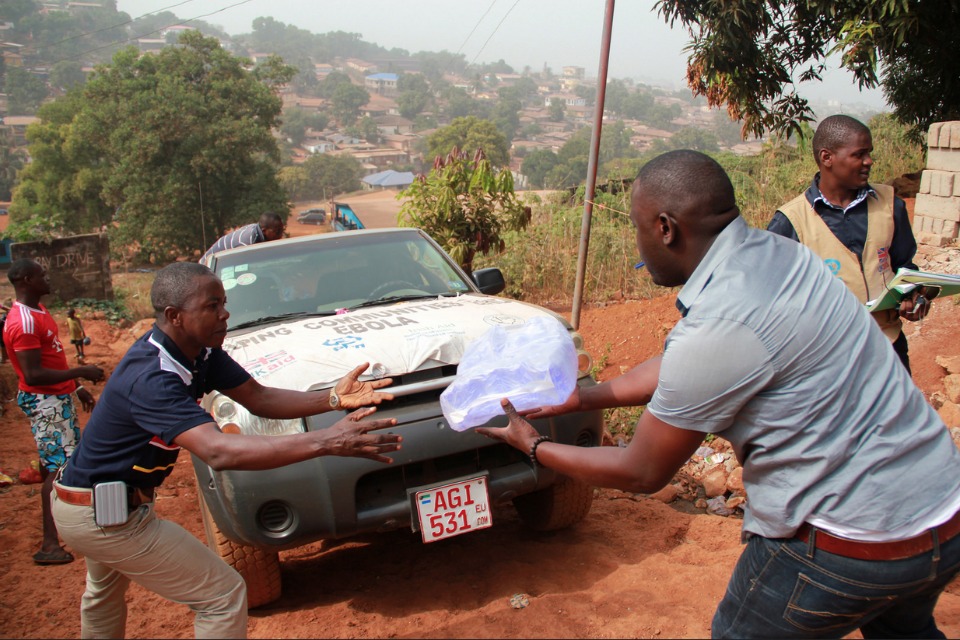"Only by learning the lessons from Ebola will we ensure a world health and humanitarian crisis of this nature never happens again."
Statement by Ambassador Peter Wilson of the UK Mission to the UN, to the General Assembly Informal Meeting on Ebola

Thank you Mr President and thank you for your patience. And thank you for convening this timely meeting. I would particularly like to thank SRSG Cheikh Ahmed for the energy with which he started this important job and the clarity of what he has just said to all of us.
The fall in the infection rate of Ebola in West Africa is slowing the spread of this deadly disease and Sunday’s announcement that Mali is now Ebola free is important good news. But we must not confuse progress with eradication. As David Nabarro has just said to us, pockets of disease continue to blight the affected countries and their people. The United Kingdom pays tribute today to the people of West Africa who, supported by the international community, have shown commitment and courage in the face of this disease which has cost the lives of thousands, destroyed livelihoods and robbed children of their education. The global Ebola coalition must ensure that we stamp out this epidemic as well as helping West Africa on its road to recovery.
So I would like to add a fourth “C” to the SRSG’s three “C” with which we completely agree. And that fourth “C” is commitment. Commitment for the long term. The United Kingdom will continue to provide the resources and leadership needed to tackle this epidemic.
We have committed $350 million in financial support and a package of other measures focused on work with the government of Sierra Leone. In particular, hundreds of British health workers continue to join heroic national and international workers in caring for the sick.
We are supporting the Government of Sierra Leone’s command and control capability – both at the national level and critically at the district level.
This is just part of a wider, nationally and locally driven assault on the disease. We commend the leadership of the Government of Sierra Leone in supporting communities to change established social and cultural practices to break the chain of transmission. We know how painful this is, and how hard it is to do, and the achievements that Sierra Leone and other governments in the region made in this area are truly remarkable.
In addition, we are grateful to UNMEER and the UN family for stepping up their response and we encourage an even stronger level of coordination between all international actors. We believe that UNMEER can successfully complete its mission in the coming months. To achieve this, it should remain focused on three core tasks:
Firstly, providing a strong pipeline of staff to support efforts across the three countries at district level;
Secondly, sourcing and rapidly distributing physical resources to plug gaps across the region;
Thirdly, as the SRSG has really strongly emphasised, leading coordination of the international effort between UN agencies, donors and NGOs at national and district level in a consistent and systematic way in order to support the governments and people of the affected countries.
Mr President
It is critical that the international community remains focused on tackling Ebola – the crisis is far from over and complacency at this stage in the response would be dangerous, as China has just underlined. At the same time we recognise the need to plan for early and longer term recovery for the region. This will require strengthened coordination as well as nationally driven and tailored responses. We look forward to the EU/UN High Level Meeting on 3rd March in laying the foundations for a strong coalition which will work with the Governments of the region to forge a sustainable recovery.
In conclusion, we must look back at the factors which made the affected countries and their people so vulnerable, and look forward to their future. David Nabarro highlighted the WHO Board Meeting at the end of this month. Regionally, we must also help build strengthened, resilient healthcare systems, as at the same time supporting rapid vaccine production and improving the global response to health emergencies. Only by learning the lessons from Ebola will we ensure a world health and humanitarian crisis of this nature never happens again.
Thank you.